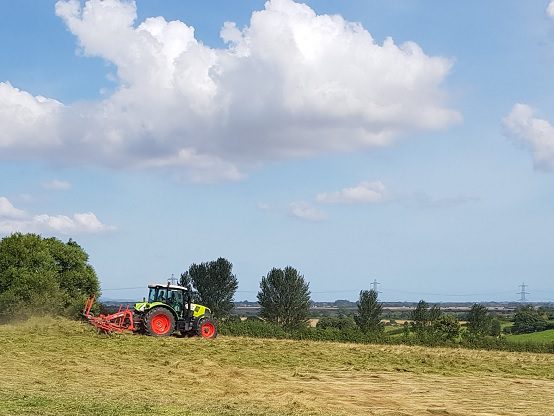The old system of farm subsidies is changing in England, but not in Wales or Scotland. Some farmers are not at all happy. In particular, the new system of payments seems to be all about helping the environment and offers very little support for food production. Farmers feel that the production of food is an essential service and cannot understand the absolute priority being given to biodiversity and other environmental objectives.
A little context may be needed. The old system, the Basic Payment Scheme, paid farmers roughly £100 per acre regardless of the crop they were growing and with minimal obligations. Although the average size of farms in 2019 was about 200 acres there are larger farms of several thousand acres.
These larger farms are by their very nature more efficient and generally make a profit without subsidy. For instance, farm of 4,000 acres after some balancing reductions would still get about £85 an acre – about £340,000. The smaller, less efficient farm of say 400 acres which barely makes any profit would find their £40,000 more necessary to keep the farm going. This subsidy system is being gradually cut back and will come to an end in 2027.
I should declare my interests here. I belong to the school of thought that is shared by Extinction Rebellion. I believe we have very little time left to tackle the problems of climate change and biodiversity loss, otherwise known as mass extinctions. I am also a third-generation “hobby farmer” with an organic mixed farm of about 500 acres in Iden and get quite a lot of farm subsidy and environmental payments.
But what about “food security”. Luckily, the government introduced in the 2020 Agriculture Bill a requirement to produce an annual food security report. This fascinating document is available and I would suggest that anyone interested in this topic read it.
Here are a few snippets. From a section on food supply sources:
- “…from a purely calorific perspective, the (below average) grain yield in 2020 of 19 million tonnes would be sufficient to sustain the population. It is equivalent to 2,600 calories, compared to the recommended calorie intake of…2500 … From these figures it is easy to demonstrate that, even without accounting for other domestic products like potatoes, vegetables, grass-fed meat and dairy, and fisheries, current UK grain production alone could meet domestic calorie requirements if it was consumed directly by humans in a limited choice scenario.”
Of course, eating only grain in a so-called “limited choice scenario” would not be very healthy or enjoyable but at least we could survive. 2020 yields were nearly 40% down on other years as a result of the weather.
Here are some more quotes:
- “The UK is largely self-sufficient in grain production”
- “In meat, milk, and eggs, the UK produces a roughly equivalent volume to what it consumes.”
- “The UK produces a significant proportion of the other domestic crops it needs”
However, we do need to import quite a lot of fish and fruit. But food waste continues to be far too high. Most (60%) of our food imports come from the EU or at least they did before Brexit.
But for me, the key message is that in terms of food we will be able to survive quite easily without imports provided we give up intensively reared meat which at the moment consumes a lot of our grain inefficiently.
But the most important message in the report is this: “The biggest risk to the UK’s domestic production comes from climate change and other environmental pressures like soil degradation, water quality and biodiversity.”
So maybe a complete rethink is necessary about how we farm and this new scheme is just the start we need.
Image Credits: Christopher Strangeways .




The quotes suggest a very rosy post-Brexit view where the U.K. is self sufficient in food, (grain and dairy) although much of the grain is fed to animals.
One figure on a business website says we import 80% of our food, whilst this government (pushed by Carrie Johnson) is obsessed with rewilding, including wolves and beavers and paying landowners to do next to nothing.
The only way England (excluding Sco and Wal) can be anywhere near self-sufficient in food, is to carry on much as now, but with the overwhelming majority of the population following a vegetarian or vegan diet.
There is a sensible organic way forward with small scale mixed farms, using a minimum of diesel fuelled machinery. Possibly back to a 20thC model.